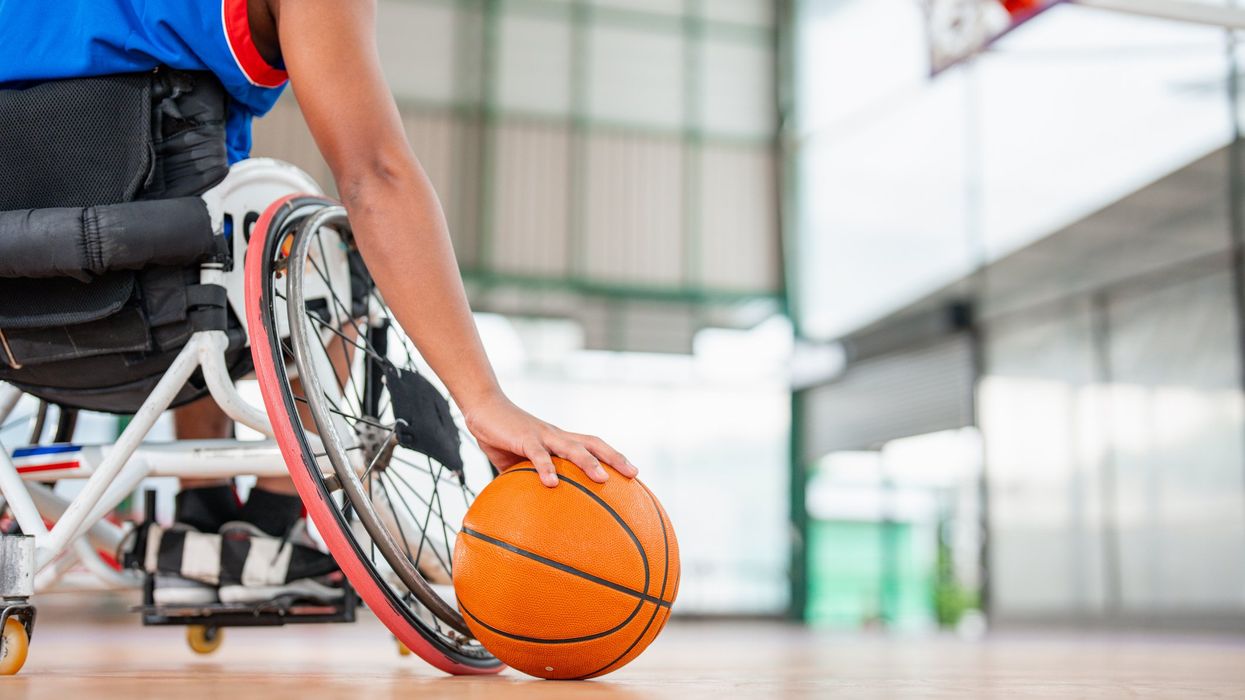In a time when our national discourse often feels fractured and cynical, there are still places where the human spirit rises above division—where courage, connection, and dignity are not just ideals, but daily practices. One of those places is the court where a wheelchair basketball team trains at Penn State. Another is the track where Special Olympics athletes run with joy and purpose. These are not just games. They are acts of civic renewal.
This spring, Penn State quietly relaunched its Adaptive Athletics program after a three-year hiatus. The program, which supports student-athletes with physical disabilities, had been sidelined during the pandemic and shifted out of Intercollegiate Athletics. But thanks to the leadership of Sue Paterno and a coalition of advocates, it has returned—restored to its rightful place as a varsity-level initiative that affirms the full dignity of every athlete.
Sue Paterno’s name is already synonymous with service. For over three decades, she has been a driving force behind Special Olympics Pennsylvania, helping to bring the Summer Games to State College and founding the iconic Beaver Stadium Run. Her work bridges two communities—those with physical disabilities and those with intellectual disabilities—through a common belief: that sport is a platform for belonging.
This belief resonates with the vision of Tim Shriver, Chairman of Special Olympics International, who has long argued that inclusion is not a side project—it is the essence of democracy. “The revolution is inclusion,” Shriver has said. “It’s not charity. It’s justice.”
Speaking to the transformative power of sport, Shriver once observed: “The glory of sport is born at the moment when the game and the person become one, when all the complexity of one's life finds a moment to emerge in the game.”
When we invest in adaptive athletics, we are not just funding sports programs. We are affirming a civic truth: that every person, regardless of ability, has something to contribute to our shared story. We are building spaces where courage is not measured by medals, but by the willingness to show up, to compete, to connect.
In an era when democracy feels under strain, perhaps we should look more closely at the athletes who are often overlooked. The ones who push their chairs up steep ramps. Who memorizes routines despite cognitive barriers. Who show up not for fame or fortune, but for the love of the game—and the community it creates.
The Bridge Alliance Education Fund (parent organization of The Fulcrum) is proud to be doing just that—by partnering with The Team to support the Engaged Athlete Fellowship, a groundbreaking initiative that empowers student-athletes to become civic leaders on their campuses and in their communities.
The Bridge Alliance has long been a backbone of the democracy reform ecosystem, uniting hundreds of organizations through its Citizen Connect platform to foster civic participation across political, racial, and generational lines. The Team, founded in 2020, brings a fresh, athlete-centered approach to this work—helping over 50,000 student-athletes become better teammates, leaders, and citizens.
Together, through the Engaged Athlete Fellowship, we are building a pipeline of civic-minded athletes who understand that leadership doesn’t end at the buzzer. Fellows receive mentorship, funding, and training to launch their own civic engagement projects—culminating in a summit in Washington, D.C., where they share their work and shape the future of sports-based civic renewal.
This is more than a fellowship. It’s a movement—one that sees athletes not just as competitors, but as catalysts for democracy. In describing the Program Joe Kennedy Executive Director of Theteam.org explained the power of the program in saying “We scaled our impact, programming and resources to ultimately build out year-round programming for student athletes to engage and think about developing civic habits, leadership skills and a sense of how they can use their platform and their voice to make an impact in their community.”
All three programs described—Penn State Adaptive Athletics, Special Olympics, and The Engaged Athlete Fellowship—are models for the kind of society we aspire to be. They are collaborative, joyful, and radically human. They remind us that excellence comes in many forms—and that the playing field, when truly level, reveals the best in all of us.
Their example is not just inspiring. It is instructive.
If we want to renew democracy, we must start by renewing our commitment to dignity. Adaptive Athletics, Special Olympics, and the Engaged Athlete Fellowship show us how. They are not just sports programs. They are civic classrooms—where the lessons are written in sweat, resilience, and joy.
Our nation would do well to follow the lead of these athletes.
David Nevins is co-publisher of The Fulcrum and co-founder and board chairman of the Bridge Alliance Education Fund.




















